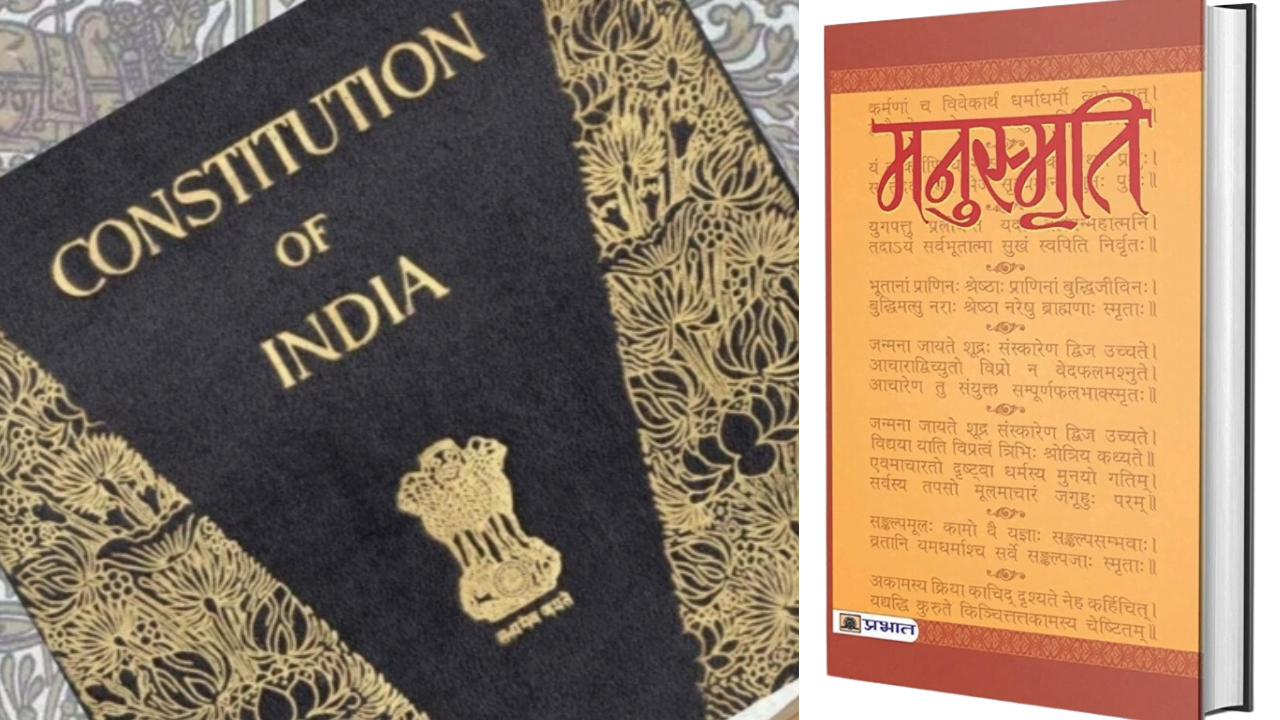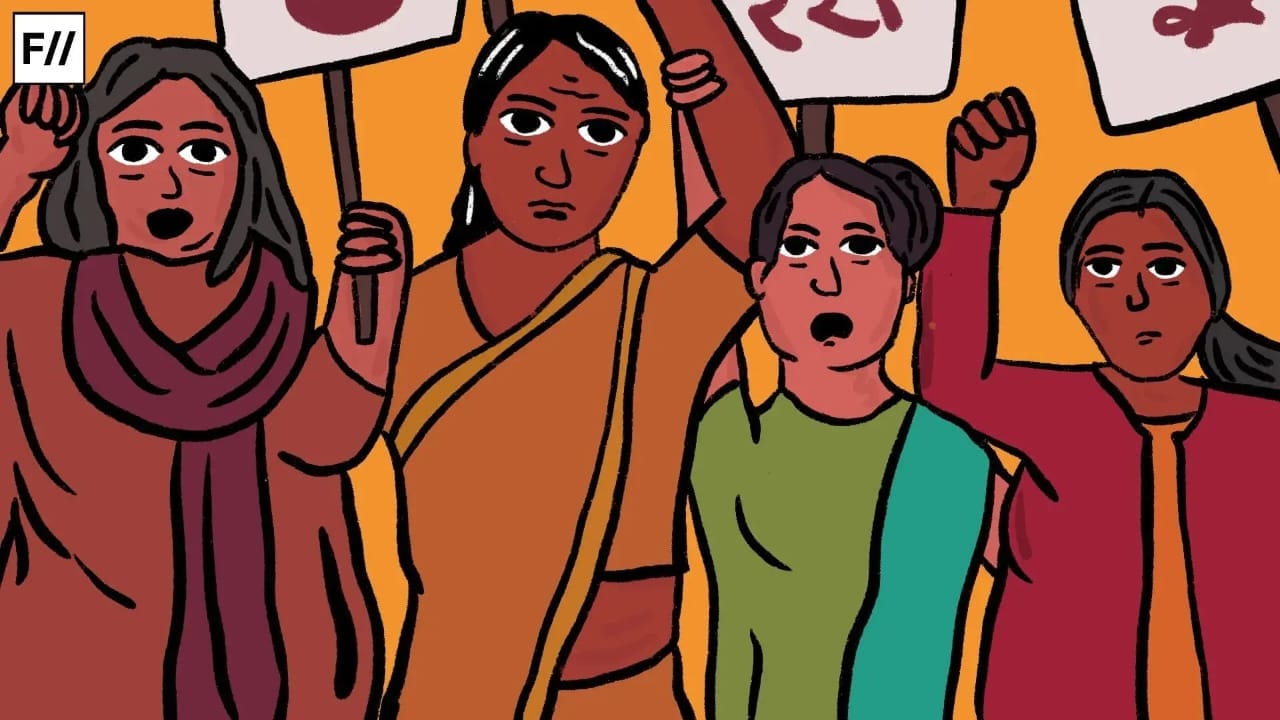Trigger Warning: This article discusses the recent Gujarat HC statement with respect to Manusmriti and mentions rape and abortion.
A week back, in a plea hearing concerning the pregnancy termination of a minor rape survivor, Gujarat High Court judge Justice Samir Dave alluded to Manusmriti as he claimed that delivering a child has not been particularly unusual for 17-year-old girls. He directed medical professionals to examine the minor involved in the case but suggested that he would not allow abortion if she and the foetus are deemed healthy.
Arguments against abortion, including in cases with rape survivors, are not new. Feminists have heard statements that make no sense wrapped in the language of logic for decades. Heated discussions on the foetus’s personhood still continue in bioethics classrooms, newspaper columns, and tweets.
Arguments against abortion, including in cases with rape survivors, are not new. Feminists have heard statements that make no sense wrapped in the language of logic for decades. Heated discussions on the foetus’s personhood still continue in bioethics classrooms, newspaper columns, and tweets.
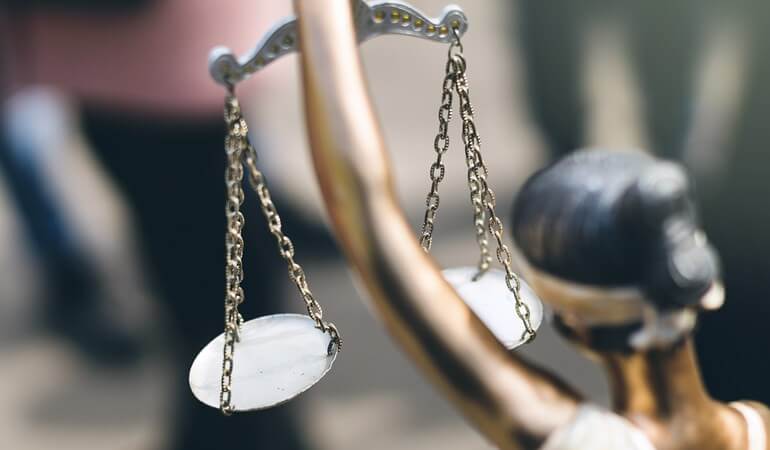
Further, India isn’t, it must be emphasised, the only country where anti-abortion debates thrive even when abortion remains legally accessible. This is a crisis across borders. Last year, for instance, the former Cabinet minister in the UK spoke against abortion rights by arguing that “new life” begins at conception: “There is a clear point of conception where there is a new genetic entity. It is unbelievably clear and straightforward.” Five months before the Tory MP’s statement, the judge Joana Ribeiro Zimmer refused an 11-year-old rape survivor’s petition for abortion in her seventh month in Brazil, though the procedure was finally performed. From political centres to courtrooms, abortion has rarely been uncontested.
Nonetheless, Justice Dave’s comment is interesting for various reasons. First, the text he refers to has misogynistic and casteist undertones. A woman, according to verse 9(3) of Manusmriti, is supposed to be guarded by her father when she is a virgin, by her husband in her youth, and by her sons in her old age. She is never “fit for independence.” The “very nature of women” is, Manusmriti clarifies, “to corrupt men here on earth.”
Given how explicitly the text paints women as sexual tempters, a stereotype that is frequently brought up by defence lawyers in rape cases, it is rather shocking that it is referenced by a judge in an abortion case featuring a minor survivor. Speaking of Manusmriti, Kavita Krishnan rightly avers, “One cannot be a feminist in India if you are not fighting the Manusmriti — and one cannot fight the Manusmriti without being robustly feminist, and asserting women’s unconditional autonomy.”
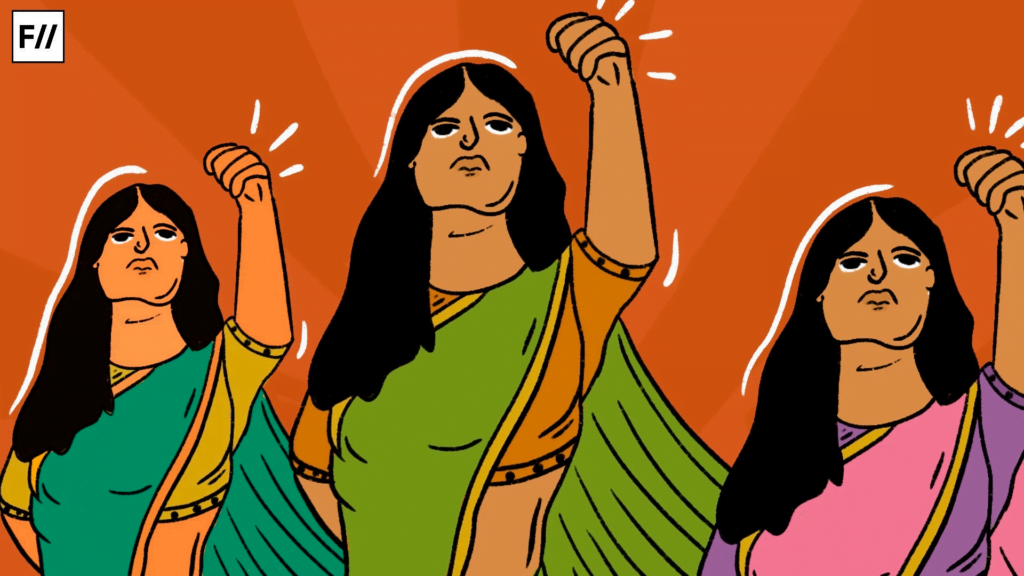
The problem with a citation from Manusmriti in Court is not merely its exposure of the judge’s patriarchal bias because instances evincing such bias are so many that the manifestation of the bias no longer appears surprising. The more insidious issue lies with Justice Dave’s presentation of Manusmriti as a historical document, as though idioms of religious morality in a Hindu legal text must dominate the national imagination.
This leads us to examine the second concern with the comment. Justice Dave’s recommendation to the lawyer (“do read Manusmriti once for this”) hints at an underlying submission to the growing wave of majoritarianism gripping the country. By bringing up a manuscript of religious importance for Hindus as a historical document, with reliable data about the “older times,” Justice Dave shows how even custodians of law are liable to corruption in the wake of calls for a Hindu Rashtra.
This leads us to examine the second concern with the comment. Justice Dave’s recommendation to the lawyer (“do read Manusmriti once for this”) hints at an underlying submission to the growing wave of majoritarianism gripping the country. By bringing up a manuscript of religious importance for Hindus as a historical document, with reliable data about the “older times,” Justice Dave shows how even custodians of law are liable to corruption in the wake of calls for a Hindu Rashtra.
This, of course, doesn’t mean that the BJP-led government has incentivised Justice Dave in particular to make such a comment in his Court. Rather, it illustrates how judges such as Justice Dave are easy prey to the dangerous language of Hindutva, which has been sustained by the ruling party with rigour since 2014.
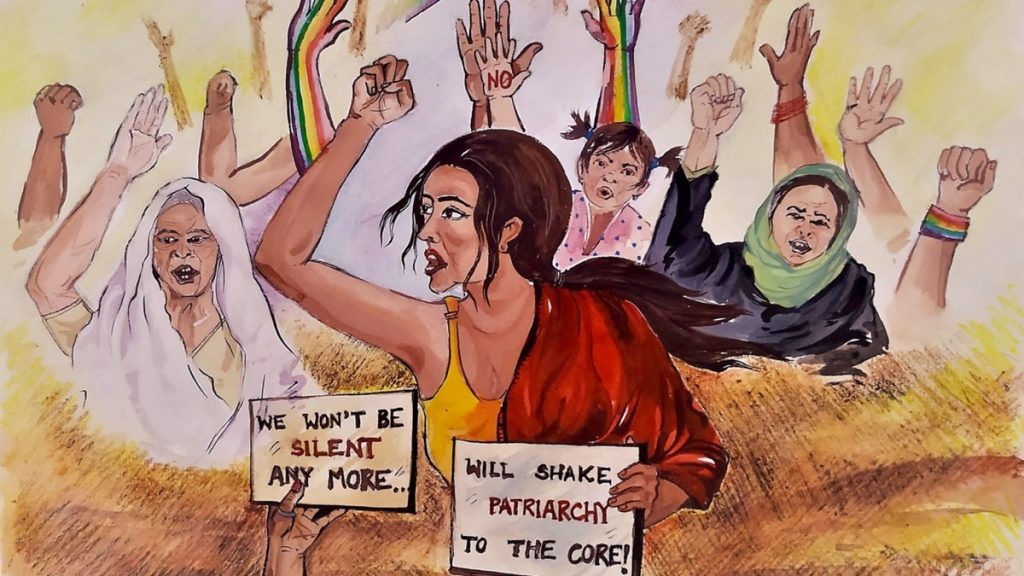
India’s history is not Hindu history. Referencing how “normal” it was for 17-year-old girls to get pregnant in “older times” is not the brag Justice Dave thinks it is. The weaponisation of a distorted perception of national history in a plea hearing for the abortion of a minor survivor speaks volumes about how distant the constitutional promise of equality is for women. It reveals how even the court fails to emerge as a productive site of transformation.
Gender injustice in courts is, sadly, not exceptional. In 2021, when a government servant, accused of repeated rape and torture of a minor, was granted bail, he was asked if he would consider marrying her. In a 2020 rape case, Justice Krishna S. Dixit questioned the explanation offered by the complainant when she claimed that she fell asleep after she was raped. He called it “unbecoming of an Indian woman,” adding that “that is not the way our women react when they are ravished.” These comments were later expunged from the judgement. Similar stories abound.
Invoking Manusmriti, asking an accused if he’d marry the complainant, and calling a survivor “unbecoming” for failing to act like an “appropriate” rape victim are all symptoms of a mindset that privileges cultural codes of conduct in accordance with Hindu law. The increasing proliferation of such a mindset across states and across courts has to be understood in the context of the contemporary socio-political landscape.
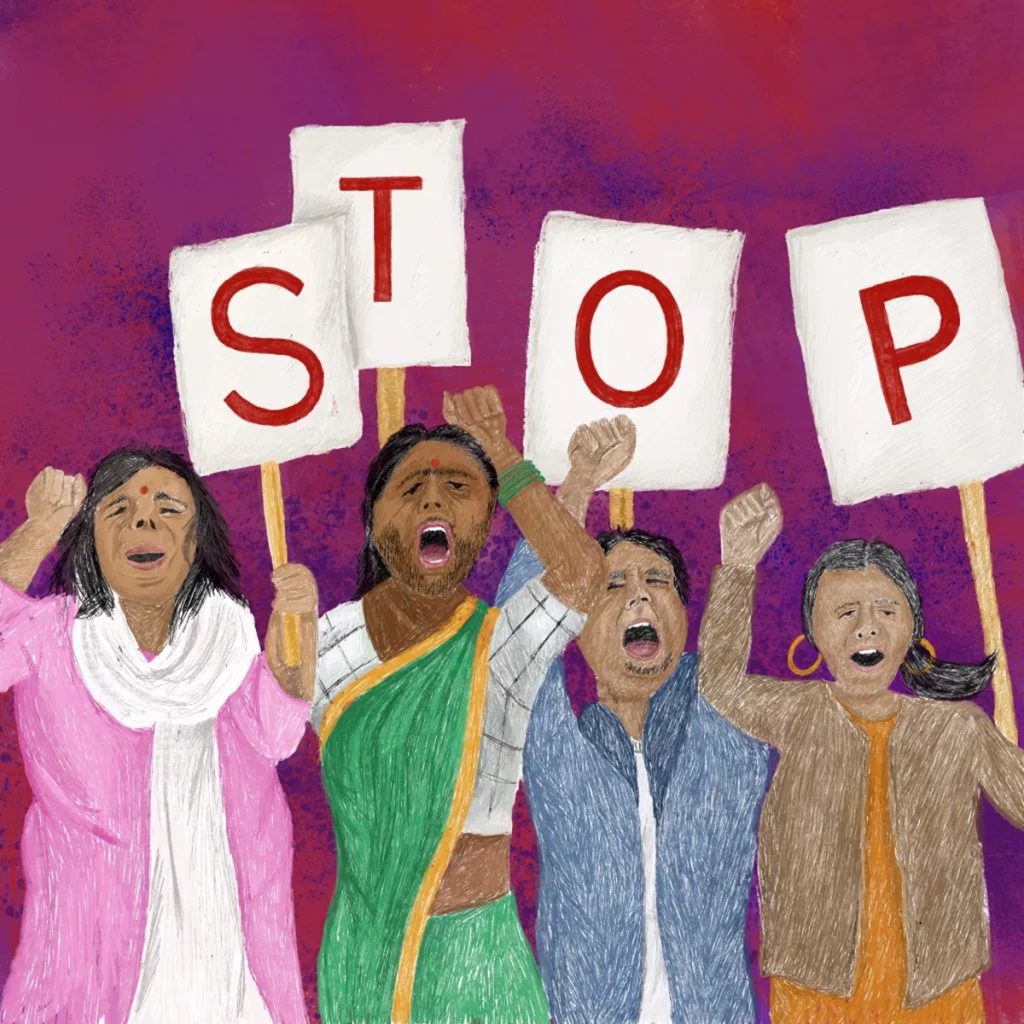
Consider, for instance, the fact that the Ministry of Health and Family Welfare told the Indian Supreme Court in 2019 that pregnant women’s right to abortion is not absolute. From a legal point of view, Professor Amir Ullah Khan argued that the 1971 Medical Termination of Pregnancy Act “does state that women do not have the absolute right to abortion” since there are certain conditions in place. However, he added that there is sufficient evidence of cases where courts have allowed women complete autonomy over their bodies. Keeping in mind extant precedents, the fact that the union health ministry made such a statement in response to a petition to raise the time period for pregnancy termination is troubling.
Understanding the political context behind a sudden interest in Hindu values, evidenced by the remarks of prominent judges, uncovers the third issue with the comment under scrutiny: what does Justice Dave’s comment say about the promise of the legal process? If the likes of Manusmriti will be deemed worthy of citation in the Hindutva culture cultivated during Modi’s regime, would religious codes be valued to the extent that gender justice will become a mirage?
The centre’s dismissal of the aforementioned petition for being “premature” forms the backdrop for ignorant comments originating from misogynistic biases. The context doesn’t justify what Justice Dave said, but it allows us to situate his comment alongside similar comments that are now becoming the norm in the process of justice administration.
Understanding the political context behind a sudden interest in Hindu values, evidenced by the remarks of prominent judges, uncovers the third issue with the comment under scrutiny: what does Justice Dave’s comment say about the promise of the legal process? If the likes of Manusmriti will be deemed worthy of citation in the Hindutva culture cultivated during Modi’s regime, would religious codes be valued to the extent that gender justice will become a mirage? If the judiciary is to play second fiddle to patriarchal texts and narratives, what realistic expectations are women allowed to have from professionally appointed dispensers of justice?

Even as we come together to remember and criticise the comment Justice Dave made, let us not forget the ambience of Hindutva that makes such commentary normative, to begin with. Traditionally, we tend to look up to courts and make peace with legal judgements, thinking to ourselves that judgements made by sensible judges must be right. Sometimes, we celebrate judges when, for instance, they recognise marital rape as rape and applaud their actions for doing what is truly the bare minimum.
We must remember that the legal machinery is, unfortunately, flawed. Time and again, judges become mouthpieces of unmistakably conservative viewpoints that act as impediments to securing gender justice. Justice Dave’s comments serve as a part of the wider patriarchal Hindutva culture being fostered and maintained. Let’s target judicial patriarchy, not one particular judge.
About the author(s)
Mridula Sharma is a research scholar and a poet. Her research interests include feminist theory, postcolonial writing, issues of marginality, and contemporary advancements in cinema. She is fascinated with Tristram Shandy and Wuthering Heights. She enjoys reading, writing, painting, and thinking.
